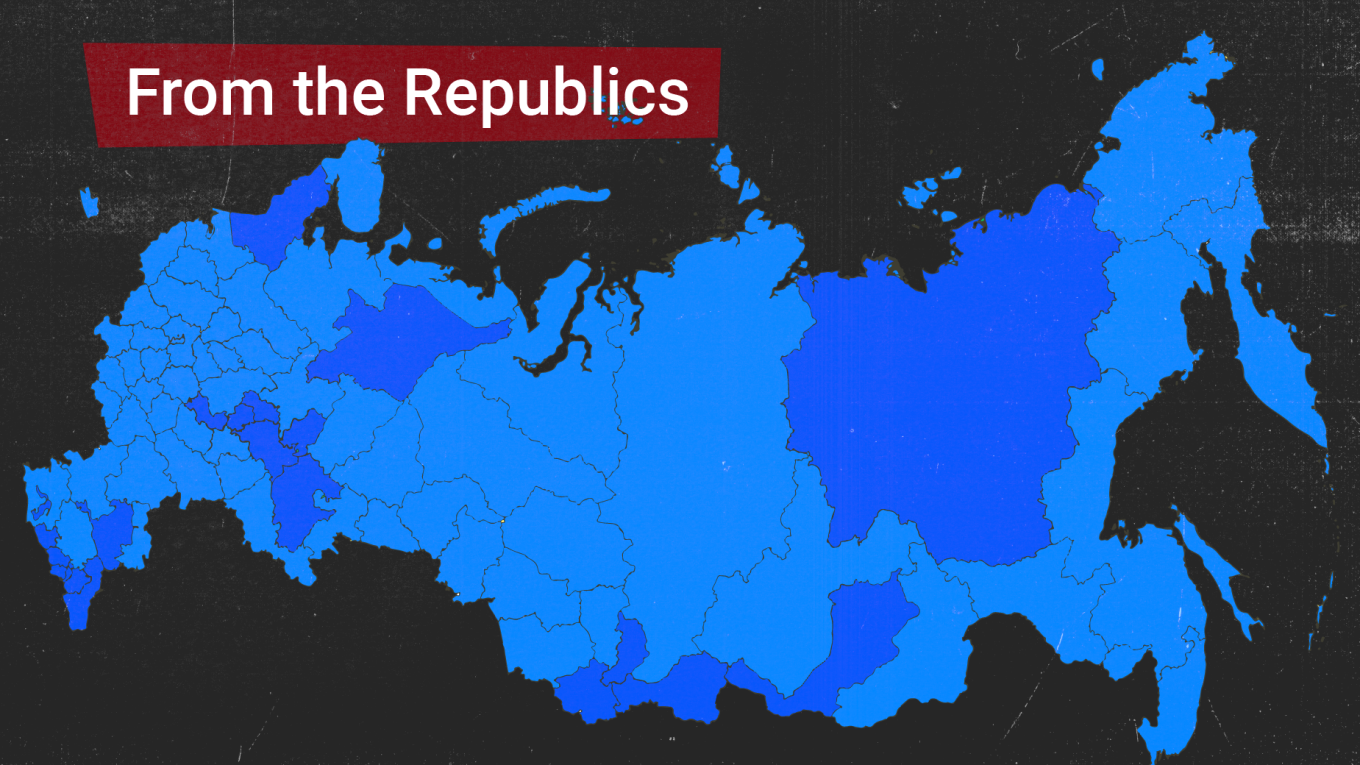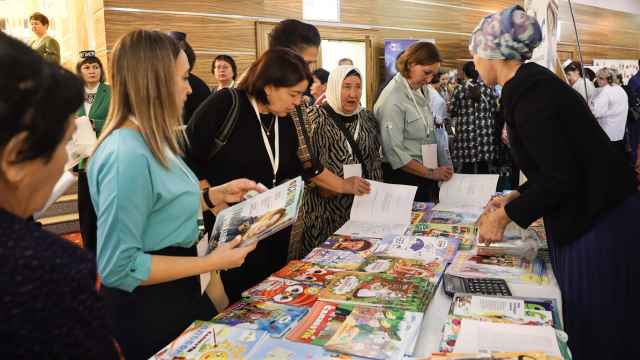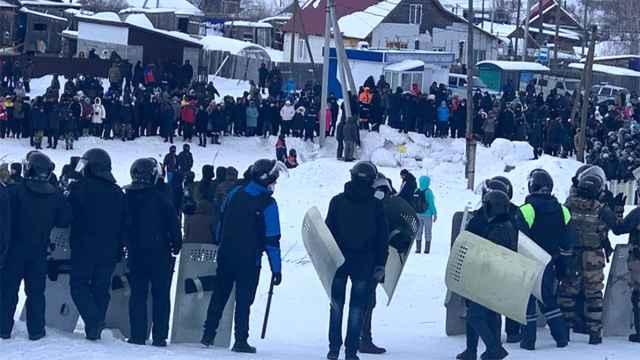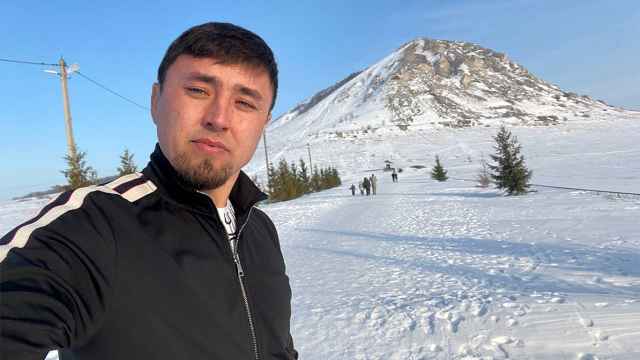From the Republics is a new weekly column from MT reporter Leyla Latypova that focuses on the latest political and social developments in Russia's ethnic republics. This week's edition looks at how Kremlin-installed officials learned how to wield Russia Day for propaganda.
Russians across the country last week celebrated Russia Day, a national holiday commemorating the country’s declaration of sovereignty in 1990 and the beginning of constitutional reform in the Russian Soviet state.
Despite over three decades of observance, many Russians are unsure why they get a day off from work on June 12.
At the same time, Russia’s celebration of its independence from the U.S.S.R. has always been a bit paradoxical given the fact that the country views itself as the legal successor to the Soviet Union. And amid Moscow's war of territorial conquest in Ukraine, the holiday seems even more absurd.
Under President Vladimir Putin, Russia Day has mostly become a state-sanctioned showcase of patriotic fervor.
Nowhere do these celebrations appear more out of place than in Russia’s ethnic republics. Many of these regions declared their sovereignty alongside Moscow in the 1990s but never truly gained independence from Russia. This year, the Kremlin-aligned heads of these republics used the holiday to demonstrate their loyalty to Moscow.
In Ingushetia, a North Caucasus republic that saw mass protests against a Kremlin-backed land swap with neighboring Chechnya a few years ago, the local leader marked the occasion by erecting a Russian flag on the Tower of Concord in the capital Magas, the tallest observation tower in the region.
The republic of Tatarstan, once hailed as a bastion of federalism until Moscow forced it to abandon its regional presidency and rewrite its constitution in 2022, saw members of the ruling United Russia party unfurl a huge Russian flag measuring some 3,750 square meters.
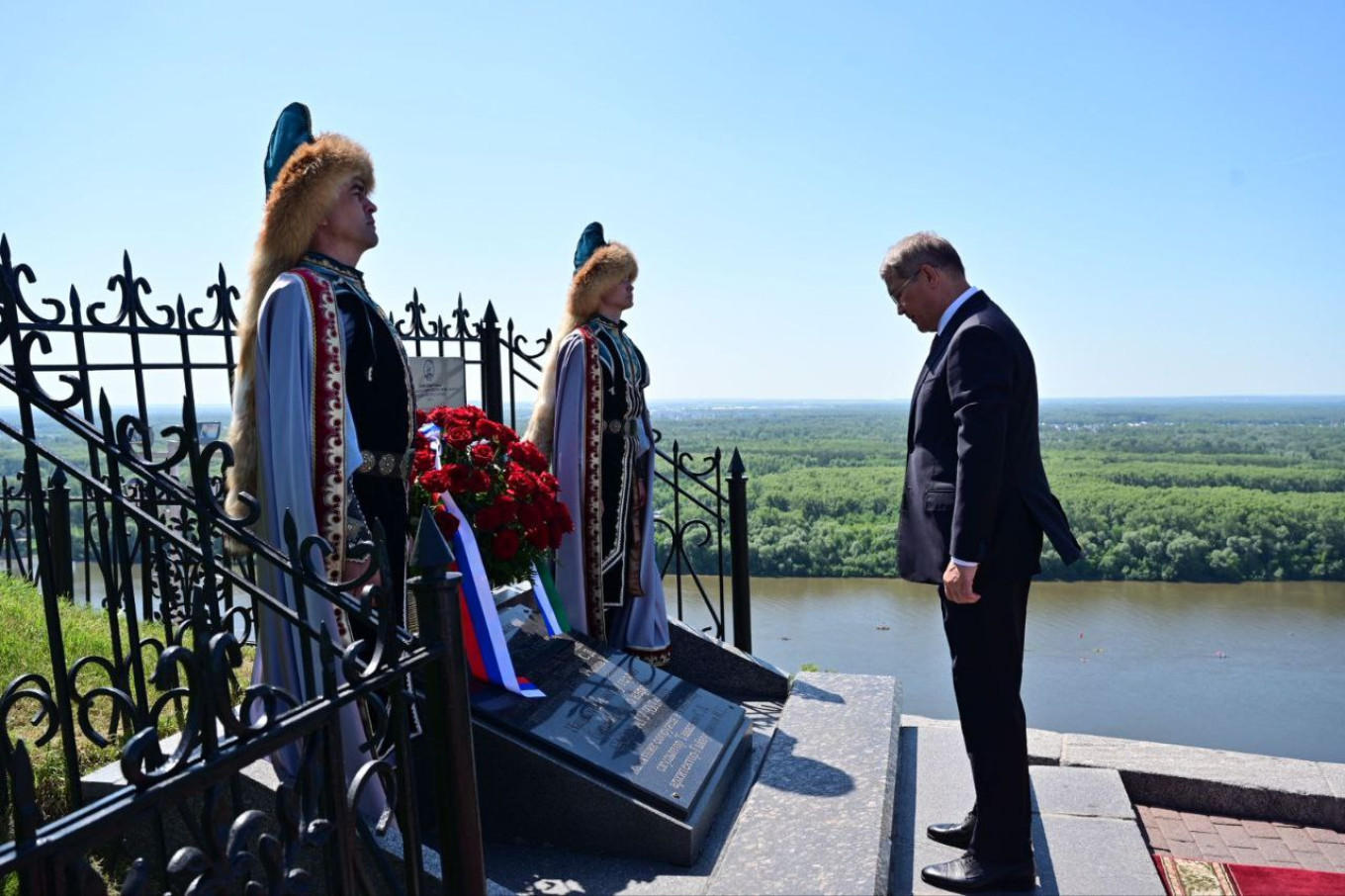
But some of the most lavish celebrations took place in the republic of Bashkortostan, where Russia Day coincided with the capital Ufa’s city day and the 270th anniversary of the birth of Bashkir national hero Salawat Yulaev.
Yulaev, who led an 18th-century uprising against the Russian Empire and symbolizes Bashkir aspirations for independence, is in fact believed to have been born on June 16. But this year, authorities apparently sought to reimagine his biography so that his birthday could coincide with Russia Day — a testament to how the Kremlin and its local administrators manipulate Indigenous histories for its own political objectives.
Bashkortostan’s Kremlin-appointed head, Radiy Khabirov, was front and center during the region’s Russia Day celebrations this year, aiming to repair the PR damage caused by the imprisonment of Bashkir rights activist Fayil Alsynov in January and the subsequent crackdown against his supporters.
Many in Bashkortostan view the jailing of Alsynov as part of Khabirov’s personal vendetta against the activist given his popularity in the region, with Alsynov’s four-year prison sentence sparking mass protests in January.
Khabirov’s role in going after Alsynov’s supporters has clearly tanked his reputation, a chief concern for the Kremlin as he gets ready to stand for re-election in September.
State media in Bashkortostan focused their Russia Day coverage on Khabirov, showing him laying flowers at monuments, attending festive gatherings and talking about peace and stability within the republic.
“More than 460 years ago, our ancestors decided to join the Russian state. We live together [with Russians] while preserving our nation, culture, language, and identity — this is such a unique thing,” he told local media.
Khabirov’s PR efforts on Russia Day were likely aimed at pleasing his Kremlin superiors, who are counting on him to win the upcoming regional election. In the absence of free and fair elections, he will undoubtedly win.
However, as far as winning over the hearts and minds of many Bashkortostanis goes, Khabirov’s efforts might be too little, too late.
A Message from The Moscow Times:
Dear readers,
We are facing unprecedented challenges. Russia's Prosecutor General's Office has designated The Moscow Times as an "undesirable" organization, criminalizing our work and putting our staff at risk of prosecution. This follows our earlier unjust labeling as a "foreign agent."
These actions are direct attempts to silence independent journalism in Russia. The authorities claim our work "discredits the decisions of the Russian leadership." We see things differently: we strive to provide accurate, unbiased reporting on Russia.
We, the journalists of The Moscow Times, refuse to be silenced. But to continue our work, we need your help.
Your support, no matter how small, makes a world of difference. If you can, please support us monthly starting from just $2. It's quick to set up, and every contribution makes a significant impact.
By supporting The Moscow Times, you're defending open, independent journalism in the face of repression. Thank you for standing with us.
Remind me later.



